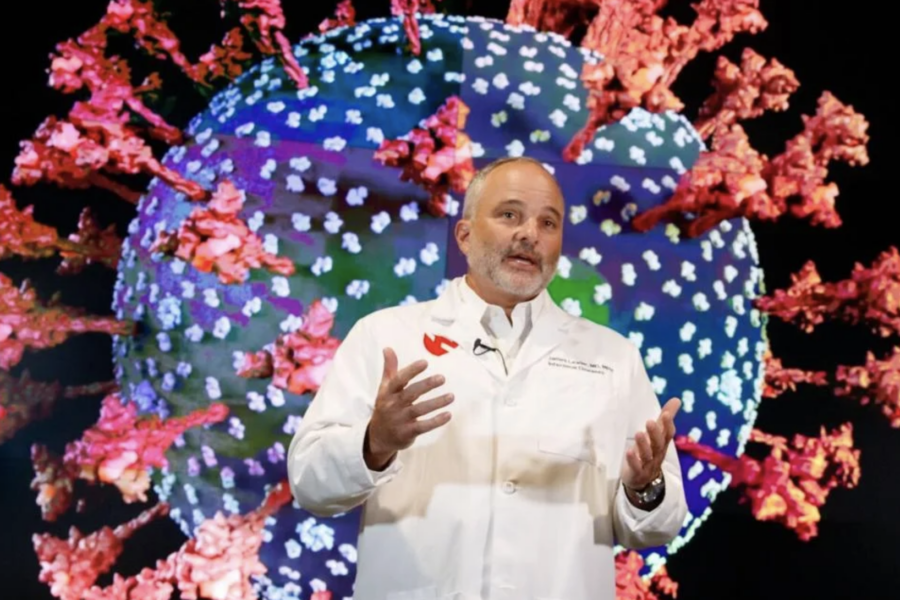A year into the COVID-19 pandemic in early 2021, a group calling itself the Covid Crisis Group gathered to lay groundwork for what its 34 members anticipated would eventually be a commission tasked with studying the nation’s response, along the lines of the 9/11 Commission.
One of the group’s members, Philip Zelikow, a history professor at the University of Virginia, served as executive director of the 9/11 panel. The Covid Crisis Group gathered data, organized working groups on different topics and interviewed nearly 300 people.
But the call for a national COVID-19 inquiry didn’t come. So the group decided to share what it learned about what went right, what went wrong and how to fix it before the next pandemic. Their book, “Lessons from the Covid War: An Investigative Report,” was published last week.
Among the authors was Dr. James Lawler, associate director of the University of Nebraska Medical Center’s Global Center for Health Security. Also on the panel was Melissa Harvey, who was involved with regional disaster response work at UNMC for a time and now works in emergency operations at HCA Healthcare.
The group pointed out a number of successes, from the Operation Warp Speed initiative that put millions of shots in arms in record time to local initiatives such as successful vaccination efforts by some Native American tribes. The authors lauded the heroism of health care and public health workers.
But they also called out failures, including pandemic response systems unsuited to the current day and a sluggish initial response. In spite of spending trillions of dollars, the United States’ excess mortality rate, or deaths above what usually would be expected, was about 40% higher than that among Europeans during 2020 and 2021.
Lawler said Zelikow, the book’s lead author, summed up the situation well in an opinion piece he wrote in Time: “The COVID war shows how our wondrous scientific knowledge has run far, far ahead of the organized human ability to apply that knowledge in practice. If we want to avoid a repetition of the catastrophe of 2020-22, we cannot ignore that the COVID war revealed a collective national incompetence in governance.”
